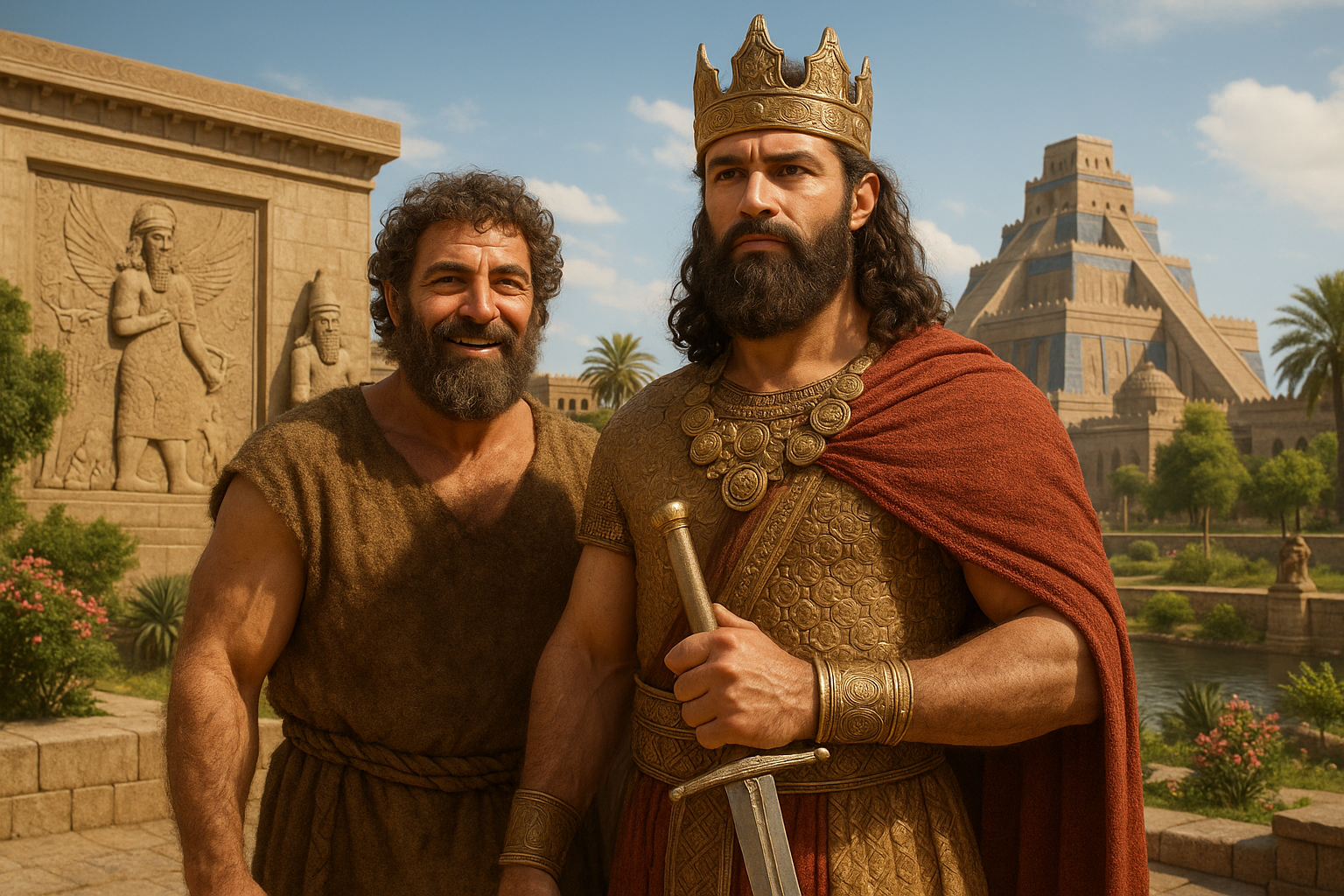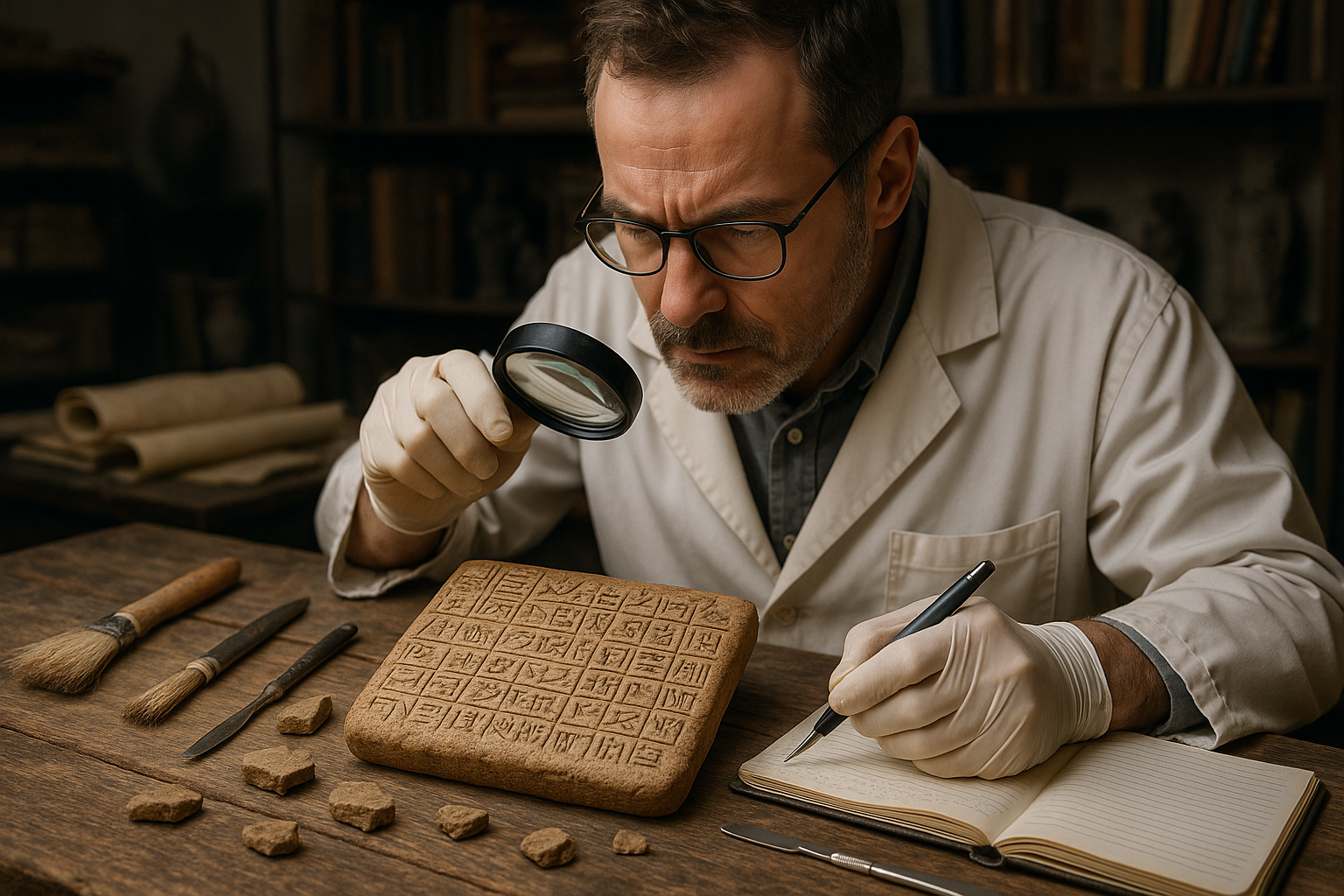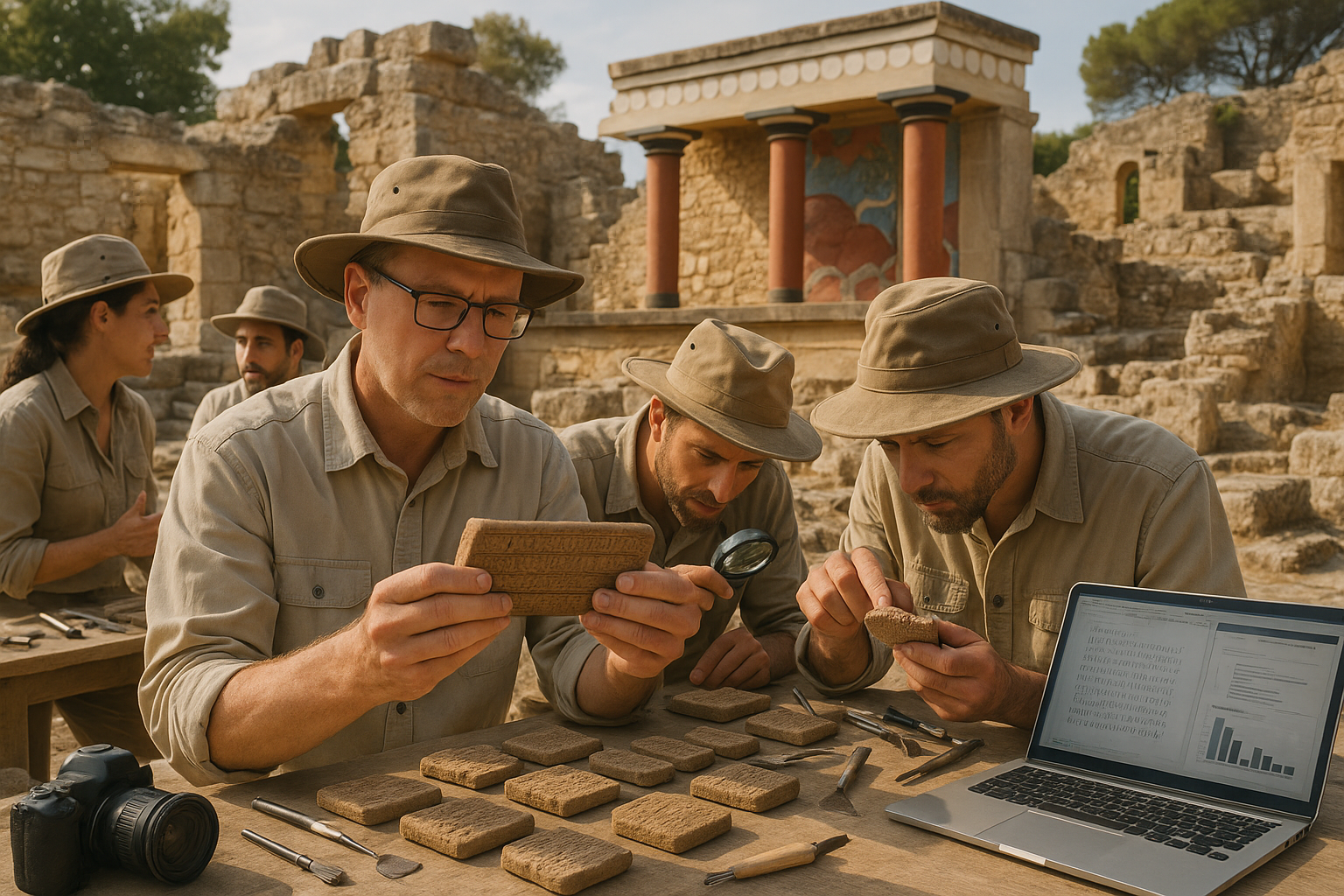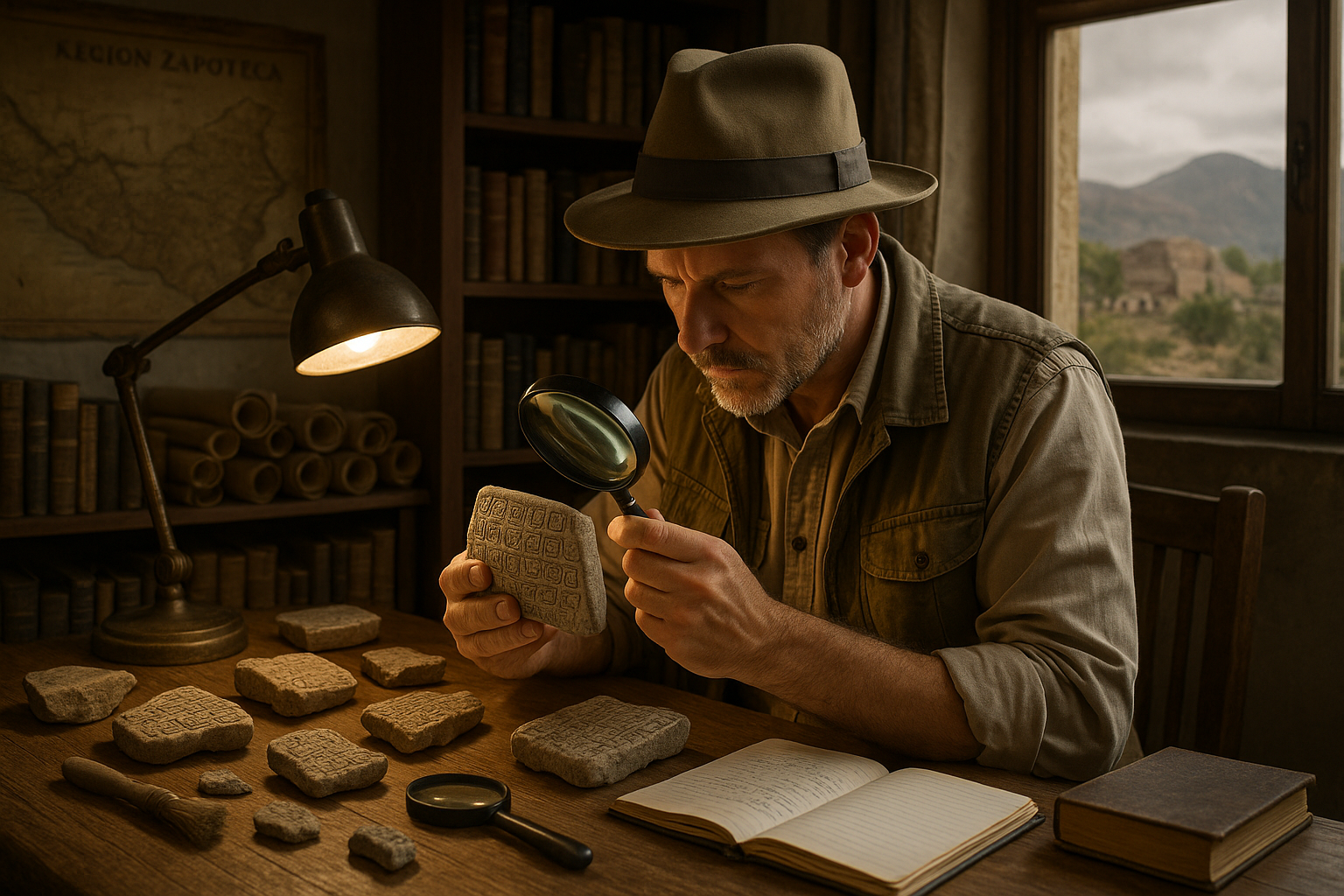The story of Gilgamesh, an ancient Mesopotamian narrative etched into clay tablets thousands of years ago, stands as one of humanity’s earliest literary masterpieces. This epic, with its blend of myth, history, and existential inquiry, captivates readers even today, transcending time and culture. But what is it about the Epic of Gilgamesh that has allowed it to endure the ravages of time and remain relevant in our modern era? 🤔
The Epic of Gilgamesh is not just a tale of adventure; it is a profound exploration of human emotion and the quest for immortality. Set in the ancient city of Uruk, the narrative follows the journey of Gilgamesh, a tyrannical king whose encounters with friendship, love, and loss transform him into a more enlightened ruler. As you delve into this narrative, you will uncover a treasure trove of themes, from the hero’s journey to the inevitable confrontation with mortality. 🌟
At its core, the Epic of Gilgamesh is a story of transformation. Gilgamesh, initially portrayed as a domineering ruler, embarks on an epic quest after the arrival of Enkidu, a wild man sent by the gods to temper his arrogance. This friendship between Gilgamesh and Enkidu forms the heart of the epic, illustrating the timeless theme of camaraderie and the powerful impact of genuine connection. As you read through the unfolding adventures, their bond becomes a beacon of hope and resilience, reflecting the importance of relationships in the human experience.
The narrative also delves into the inevitability of death and the human desire to find meaning in life. Following a devastating loss, Gilgamesh is consumed by a fear of mortality, prompting a journey to seek eternal life. This quest highlights a universal struggle: the search for purpose and the acceptance of life’s finite nature. The epic raises profound questions about what it means to live a fulfilled life, offering wisdom that resonates across centuries.
But the Epic of Gilgamesh is more than just philosophical musings. It is a vibrant tapestry of adventure, featuring encounters with mythical creatures, divine interventions, and monumental battles. Each episode serves to challenge Gilgamesh, pushing him beyond his limits and forcing him to confront his deepest fears and desires. These thrilling narratives not only entertain but also serve as allegories for personal growth and self-discovery.
As we explore the Epic of Gilgamesh in this blog, we will also delve into its historical context, examining how this ancient text has influenced literature and culture throughout the ages. From its origins in Mesopotamian society to its rediscovery in the 19th century, the journey of this epic is as fascinating as the tale itself. By understanding the historical backdrop, you will gain a deeper appreciation for the cultural and intellectual legacy of this timeless story.
Furthermore, we will reflect on the relevance of Gilgamesh in contemporary society. In an era marked by rapid change and existential uncertainty, the themes of the epic resonate more than ever. It invites us to contemplate our own lives, our relationships, and our place in the world, offering guidance and inspiration to navigate the complexities of modern existence.
Join us on this enlightening journey through the Epic of Gilgamesh, where adventure, wisdom, and timeless truths await. Whether you are a seasoned scholar or a curious reader, this ancient tale promises to enrich your understanding of what it means to be human. 📚
In the following sections, we will explore each of these themes in detail, unraveling the mysteries of this epic and revealing the enduring lessons it imparts. From the hero’s journey to the exploration of mortality, from historical insights to modern interpretations, this blog will be your guide through the rich and captivating world of Gilgamesh. Let the adventure begin! 🚀
# Unveiling the Epic of Gilgamesh: A Timeless Tale of Adventure and Wisdom Passed Down through Generations
## The Origin and Discovery of the Epic of Gilgamesh
The Epic of Gilgamesh is one of the earliest known works of literary fiction, a narrative that dates back to ancient Mesopotamia, specifically around 2100 BC. This legendary poem was originally inscribed on clay tablets in the Akkadian language, reflecting the rich cultural and historical backdrop of its time. Its discovery, which began in the 19th century, was a monumental moment in the world of archaeology and literature, revealing a window into the ancient civilizations of Sumerians, Akkadians, and Babylonians.
The epic was unearthed in the ruins of the library of Ashurbanipal, in Nineveh, present-day Iraq, by British archaeologist Austen Henry Layard and his team. This discovery sparked global interest and provided scholars and historians with invaluable insights into the life and thoughts of ancient peoples. Over time, numerous tablets were found, some in fragmented conditions, which were painstakingly reconstructed by experts to piece together this timeless story. The complexity of the epic, its themes, and the intricate details of its narrative continue to captivate scholars and enthusiasts alike.
Beyond its literary significance, the epic serves as a crucial artifact that bridges the past with the present. It offers us glimpses into the thoughts, beliefs, and daily life of ancient civilizations. Through Gilgamesh’s journey, themes of friendship, mortality, and the quest for wisdom are explored, themes that are as relevant today as they were millennia ago. The discovery and translation of the Epic of Gilgamesh not only enriched our understanding of early human societies but also underscored the universal nature of storytelling as a means of exploring human existence.
## The Narrative Structure and Themes Explored in the Epic
At the heart of the Epic of Gilgamesh is a story that transcends time. The narrative follows the eponymous hero, Gilgamesh, the semi-divine king of Uruk, renowned for his strength and courage. His journey begins with a portrayal of his initial arrogance and tyranny, which leads the gods to create Enkidu, a wild man who becomes both a rival and a close friend to Gilgamesh. Their friendship marks a pivotal shift in Gilgamesh’s life, setting the stage for their legendary adventures together.
The epic unfolds in several distinct episodes, each contributing to the overarching theme of the quest for immortality and the search for meaning in life. The duo’s adventure into the Cedar Forest, their battle with the monstrous Humbaba, and the confrontation with the Bull of Heaven are all symbolic of humanity’s struggle against the forces of nature and fate. These adventures not only showcase the heroic feats of Gilgamesh and Enkidu but also highlight their profound bond, emphasizing themes of friendship and loyalty.
The tragedy strikes when Enkidu falls ill and dies, leaving Gilgamesh devastated and igniting his relentless quest for immortality. This quest leads him to the far ends of the earth, where he seeks wisdom from Utnapishtim, the immortal survivor of a great flood. Through these encounters, the epic delves into existential themes, reflecting on the inevitability of death and the importance of leaving a lasting legacy through one’s deeds. The narrative masterfully intertwines action, emotion, and philosophical reflection, making it a timeless piece of literature.
## The Characters and Their Symbolic Significance
The Epic of Gilgamesh is rich with characters that each serve a symbolic purpose, contributing to the narrative’s depth and complexity. At the forefront is Gilgamesh himself, a character of dual nature, being two-thirds god and one-third man. His journey from a tyrannical ruler to a wise and introspective leader is symbolic of the human quest for self-discovery and wisdom. Through his struggles, we see the transformation that results from personal growth and the acceptance of life’s inevitable truths.
Enkidu, Gilgamesh’s loyal companion, is a symbol of nature and innocence. Created by the gods to challenge Gilgamesh, Enkidu’s transformation from a wild man into a civilized being underscores themes of societal influence and personal change. His untimely death is a pivotal moment in the epic, representing the fragility of life and the impact of loss. Enkidu’s presence in the narrative is crucial, as it is his friendship with Gilgamesh that sets the latter on his path of self-awareness and enlightenment.
Other significant characters include Utnapishtim, who parallels the biblical Noah and represents the hope of achieving immortality through wisdom and virtue. The goddess Ishtar, who proposes to Gilgamesh and is subsequently spurned, represents the complexities of divine-human relationships and the consequences of defying the gods. These characters, among others, enrich the narrative and underscore its thematic concerns, allowing readers to explore the philosophical and moral questions posed by the epic.
## Comparative Analysis: The Epic of Gilgamesh and Other Ancient Texts
The Epic of Gilgamesh, while unique in its narrative style and themes, shares remarkable similarities with other ancient texts. Comparisons are often drawn between the epic and the biblical stories of Genesis, particularly the accounts of creation and the flood. The tale of Utnapishtim, for instance, bears a striking resemblance to the story of Noah, suggesting a shared cultural or mythological heritage among ancient civilizations.
| Aspect | Epic of Gilgamesh | Genesis (Bible) |
|---|---|---|
| Creation | Enkidu’s creation from clay | Adam’s creation from dust |
| The Flood | Utnapishtim survives a great flood | Noah survives a great flood |
| Divine Intervention | Gods intervene in human affairs | God intervenes in human history |
These parallels extend beyond narrative elements to thematic concerns, such as the exploration of human nature, the relationship between mortals and the divine, and the quest for immortality. Such similarities highlight the interconnectedness of ancient cultures and the shared human experience across different societies. The epic also shares thematic elements with other ancient works, such as Homer’s Iliad and Odyssey, where themes of heroism, friendship, and the capriciousness of fate are similarly explored.
By examining these comparative aspects, scholars gain deeper insights into the cultural exchanges and influences among ancient civilizations. It also underscores the timeless nature of storytelling as a means of expressing universal human concerns, allowing us to appreciate the shared heritage of humanity. For those interested in exploring these connections further, there are numerous scholarly works and resources available online and in libraries that delve into these intriguing parallels.
## The Legacy and Influence of the Epic of Gilgamesh
The enduring legacy of the Epic of Gilgamesh is evident in its profound influence on literature, philosophy, and modern storytelling. As one of the earliest known narratives, it set a precedent for epic storytelling, influencing the structure and themes of subsequent literary works. Its exploration of universal themes such as friendship, mortality, and the quest for meaning has resonated with audiences across generations, making it a timeless piece of literature.
Modern adaptations and interpretations of the epic have brought its ancient wisdom to contemporary audiences. From graphic novels to theatrical performances, the story of Gilgamesh continues to inspire creativity and reflection. Its themes have found echoes in modern literature and films, where characters embark on similar quests for identity and purpose. The epic’s influence is also apparent in the philosophical discourse, where its existential questions continue to provoke thought and discussion.
For those interested in exploring the epic’s influence further, numerous resources are available online, including video lectures and documentaries. One such resource is a captivating video on YouTube titled “The Epic of Gilgamesh: Crash Course World Mythology #26” by the CrashCourse channel. This video offers an engaging overview of the epic’s themes and significance, providing a visual and informative exploration of this ancient tale. 🌟 [Watch here](https://www.youtube.com/watch?v=BV9tXg14Ymk).
## Engaging with the Epic: Why It Matters Today
Engaging with the Epic of Gilgamesh today offers readers and scholars an opportunity to connect with the past and reflect on timeless human experiences. The epic’s exploration of existential themes, such as the search for meaning and the acceptance of mortality, is as relevant now as it was thousands of years ago. In a world where the quest for purpose and understanding remains a fundamental aspect of the human condition, the lessons imparted by Gilgamesh’s journey continue to resonate.
Moreover, the epic serves as a testament to the power of storytelling in preserving cultural heritage and wisdom. It reminds us of the importance of preserving our own stories and traditions for future generations. By studying the Epic of Gilgamesh, we not only gain insights into the lives and beliefs of ancient peoples but also affirm the continuity and shared nature of human experience across time and cultures.
- Discover the timeless themes of friendship and loyalty.
- Reflect on the quest for immortality and the meaning of life.
- Explore the cultural and historical significance of ancient Mesopotamia.
In engaging with this ancient narrative, we are invited to explore not only the world of Gilgamesh but also our own place within the broader tapestry of human history. Whether through academic study, creative adaptation, or personal reflection, the Epic of Gilgamesh continues to offer valuable lessons and insights that enrich our understanding of what it means to be human. 📚

Conclusion
Conclusion: A Timeless Odyssey of Learning and Reflection
The Epic of Gilgamesh is not merely an ancient narrative; it is a profound exploration of human nature and the quest for meaning. Throughout our exploration of this epic, we have uncovered its multifaceted themes, historical context, and enduring significance. Let’s recapitulate the essential points that make this tale a timeless beacon of adventure and wisdom 🌟.
Initially, we delved into the historical and cultural backdrop of Mesopotamia, the cradle of civilization, where the epic was born. This context is crucial to understanding how the narrative reflects the values, beliefs, and societal norms of its time. The characters, particularly Gilgamesh and Enkidu, embody the dual nature of humanity, grappling with the tensions between civilization and nature, power and friendship, mortality and the pursuit of immortality.
Gilgamesh’s journey is an archetypal hero’s quest, replete with trials, transformations, and revelations. His friendship with Enkidu serves as a poignant reminder of the importance of companionship and the inevitable reality of loss. This relationship catalyzes Gilgamesh’s transformation from a tyrant to a wise ruler, underscoring the theme of personal growth through shared experiences.
The narrative’s exploration of mortality is particularly resonant. Gilgamesh’s fear of death and his subsequent journey to seek eternal life highlight a universal human concern. Through his encounters with figures such as Utnapishtim, we are invited to reflect on the nature of life, the acceptance of human limitations, and the legacy we leave behind. The epic subtly encourages readers to find meaning in life’s transience and to cherish the moments of beauty and connection.
Moreover, the epic’s influence extends beyond its narrative structure and thematic depth. Its impact on literature, art, and philosophy is undeniable, providing a foundational text for subsequent works in the literary canon. The lessons embedded within the epic continue to inspire scholars, artists, and thinkers, attesting to its enduring relevance.
In considering the Epic of Gilgamesh, we also acknowledged the challenges and triumphs of its rediscovery and translation. The journey from ancient clay tablets to modern interpretations exemplifies the human quest for knowledge and understanding across time and cultures. This process of rediscovery enriches our appreciation of the text and highlights the collaborative efforts of historians, archaeologists, and linguists.
As we conclude our exploration, it is essential to recognize the timeless wisdom encapsulated in this epic. The narrative invites us to embark on our own journeys of self-discovery, to seek wisdom in the face of adversity, and to celebrate the human experience in all its complexity. It is a call to embrace the adventure of life, grounded in the understanding that our stories, like Gilgamesh’s, are part of a larger human tapestry.
I encourage you, dear reader, to reflect on the themes discussed and consider how they resonate within your own life. How do the lessons of Gilgamesh apply to your personal journey? In what ways can you embody the values of friendship, courage, and wisdom in your daily interactions?
Furthermore, I invite you to share your thoughts and insights in the comments section below. Engaging in dialogue enriches our collective understanding and appreciation of this epic tale. Feel free to share this article with friends, family, and fellow enthusiasts of ancient literature—together, we can continue to celebrate and learn from the wisdom of the past 🔍.
For those eager to delve deeper into the world of Gilgamesh, I recommend exploring reputable sources and translations of the epic. Websites such as the Encyclopaedia Britannica and academic institutions often provide comprehensive analyses and interpretations that can further enhance your understanding.
In conclusion, the Epic of Gilgamesh remains a testament to the power of storytelling and the enduring quest for meaning. Its lessons are as relevant today as they were millennia ago, urging us to seek wisdom, forge meaningful connections, and embrace the journey of life with open hearts and minds. Let us continue to honor this timeless tale by applying its insights to our lives and sharing its legacy with future generations. 🌍
Thank you for joining us on this journey through the ages. We look forward to hearing your thoughts and continuing the conversation. Until next time, happy reading and exploring! 📚✨
Toni Santos is a cultural storyteller and food history researcher devoted to reviving the hidden narratives of ancestral food rituals and forgotten cuisines. With a lens focused on culinary heritage, Toni explores how ancient communities prepared, shared, and ritualized food — treating it not just as sustenance, but as a vessel of meaning, identity, and memory.
Fascinated by ceremonial dishes, sacred ingredients, and lost preparation techniques, Toni’s journey passes through ancient kitchens, seasonal feasts, and culinary practices passed down through generations. Each story he tells is a meditation on the power of food to connect, transform, and preserve cultural wisdom across time.
Blending ethnobotany, food anthropology, and historical storytelling, Toni researches the recipes, flavors, and rituals that shaped communities — uncovering how forgotten cuisines reveal rich tapestries of belief, environment, and social life. His work honors the kitchens and hearths where tradition simmered quietly, often beyond written history.
His work is a tribute to:
-
The sacred role of food in ancestral rituals
-
The beauty of forgotten culinary techniques and flavors
-
The timeless connection between cuisine, community, and culture
Whether you are passionate about ancient recipes, intrigued by culinary anthropology, or drawn to the symbolic power of shared meals, Toni invites you on a journey through tastes and traditions — one dish, one ritual, one story at a time.





